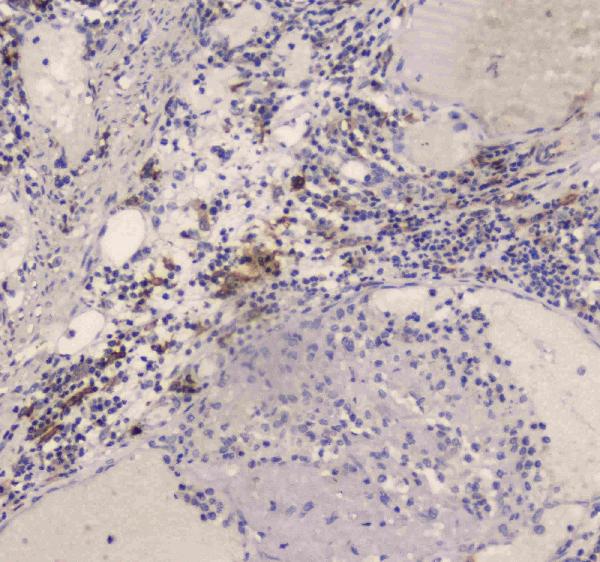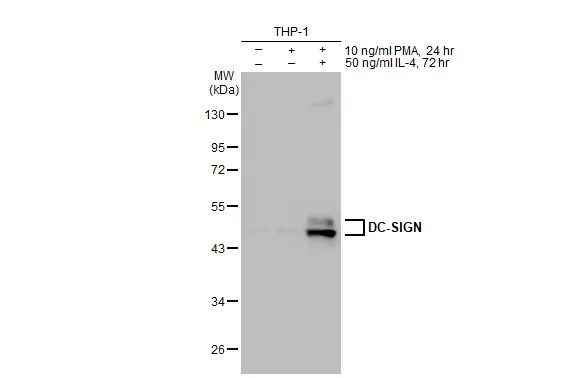DC-SIGN antibody [120507]
GTX13487
ApplicationsFlow Cytometry, ImmunoFluorescence, Western Blot, ImmunoCytoChemistry, ImmunoHistoChemistry, ImmunoHistoChemistry Paraffin
Product group Antibodies
ReactivityHuman
TargetCD209
Overview
- SupplierGeneTex
- Product NameDC-SIGN antibody [120507]
- Delivery Days Customer9
- Application Supplier NoteWB: 1 microg/ml. ICC/IF: 8-25 microg/ml. IHC-P: 8-25 microg/ml. FCM: 2.5 microg/1 x 106 cells. *Optimal dilutions/concentrations should be determined by the researcher.Not tested in other applications.
- ApplicationsFlow Cytometry, ImmunoFluorescence, Western Blot, ImmunoCytoChemistry, ImmunoHistoChemistry, ImmunoHistoChemistry Paraffin
- CertificationResearch Use Only
- ClonalityMonoclonal
- Clone ID120507
- ConjugateUnconjugated
- Gene ID30835
- Target nameCD209
- Target descriptionCD209 molecule
- Target synonymsCDSIGN, CLEC4L, DC-SIGN, DC-SIGN1, hDC-SIGN, CD209 antigen, C-type lectin domain family 4 member L, HIV gpl20-binding protein, dendritic cell-specific ICAM-3-grabbing non-integrin 1, dendritic cell-specific intercellular adhesion molecule-3-grabbing non-integrin, dendritic cell-specific intracellular adhesion molecules (ICAM)-3 grabbing non-integrin
- HostMouse
- IsotypeIgG2b
- Protein IDQ9NNX6
- Protein NameCD209 antigen
- Scientific DescriptionDendritic cells (DCs) that control immune responses were recently found to capture and transport HIV from the mucosal area to remote lymph nodes, where DCs hand over HIV to CD4+ T lymphocytes. DCs also amplify the amount of virus and extend the duration of viral infectivity. Multiple strains of HIV1, HIV2 and SIV bind to DCs via DCSIGN. ICAM3 is the natural ligand for DC-SIGN. A DC-SIGN homologue (termed DC-SIGNR, L-SIGN, and DCSIGN2) was identified recently. DC-SIGN forms a novel gene family with DC-SIGNR and many alternatively spliced isoforms of DC-SIGN and DC-SIGNR. The expression of DC-SIGN was found in mucosal tissues including placenta, small intestine, and rectum.
- ReactivityHuman
- Storage Instruction-20°C or -80°C,2°C to 8°C
- UNSPSC41116161
References
- Inhibition of acetyl-CoA carboxylase impaired tubulin palmitoylation and induced spindle abnormalities.Read this paper








